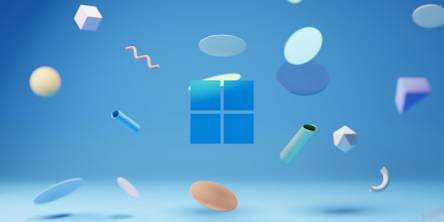Advantages of Blockchain in Charity

“There are 3 eras of currency: Commodity based, politically based, and now, math based.”
Chris Dixon, Co-founder of Hunch, now owned by eBay
“Blockchain: A ledger or a record that keeps track of any kind of data transaction on a network.” In layman's terms, blockchain is just a chain of blocks, yet not in the exact sense of those words. Blocks store digital pieces of information, all linked through codes to create a chain. This information could be monetary transactions, files, contacts–in short, anything that a user wants to share.
Blockchain technology has gained so much attention because of its potential across various sectors. It is a revolutionary technology as it makes networks more transparent and decentralized. With the rise in its usage, developers are now able to use it in different applications.
One sector particularly well-positioned to benefit is nonprofit fundraising. Nonprofits could manage, distribute, and track funds in a secure and faster way, look across borders, and much more. Let us take a look at how organizations could improve their fundraising measures with blockchain :
Added Security and Transparency
Blockchain verifies every transaction you make by forming a network of computers across the members. Therefore, no transaction can be carried out until and unless all the members of the network approve it. It will increase the security and transparency of the platform. All the members of the network will be able to access the information about where and how the donations are being used. Further, they could also keep track of donations in a much more organised manner.
Moreover, there is an additional feature–Smart Contracts, that could prove very helpful. These are self executing programs that can be associated with a block. Therefore, a lot of time consuming processes can be automated using this tool.
A wider audience
It is very difficult and time-consuming to transfer traditional currency from one country to another. Cryptocurrencies are non-geographic currencies. Charities could accept donations from anywhere in the world without any need to pay foreign exchange fees or consider currency exchange rates. Nonprofit organizations working in difficult parts of the world would also have massive benefits.
Better trackability of funds
Scandals have lessened the confidence in the charity sector, but blockchain and cryptocurrency could improve accountability.
With traditional measures, it can be difficult to verify progress on certain campaigns. However, with smart contracts on the blockchain, it can be ensured that funds are only released to an organization once they can prove their work is having an impact. Failure to meet certain targets could even result in donations being reimbursed.
Thus, blockchain would help fuel trust in this sector.
Connecting with the millennials
Millennials demand the use of technology. The new generation is also more likely to thoroughly research the charity or organization they donate to. A YouGov Survey found that half of those between 18-24 years of age prefer to donate using a crowdfunding platform, and about 40 percent of those between 18-35 years of age believe that only a small amount of their donation goes towards supporting the specific cause.
This presents an opportunity to offer a blockchain-based fundraising platform that is very compelling to a large audience of potential donors.
When people think of blockchain and cryptocurrency, they don’t typically think of philanthropy. However, these are emerging as a new fundraising vehicle. This is because nonprofit organizations face a lot of scrutiny due to a lack of transparency, accountability, and limited ways of accepting donations. Blockchain could resolve many such problems. Building applications that can show people how the money flows through your organization would definitely help your nonprofit fundraising.
Similar Articles
Telegram has become one of the most powerful messaging platforms for communities, creators, and businesses. With built-in bot support and a fast-growing user base, it’s an ideal place to automate conversations, manage FAQs, and collect responses.
Scaling a business is thrilling. It's also terrifying. You gain ten new customers. Then a hundred. Then everything gets... wobbly. The email system crashes.
Setting up a colony on Mars means we need to think hard about how everyone will talk to each other. This isn't just about chatting; it's about getting work done, staying safe, and keeping things running smoothly.
The way we work isn't just changing, it's been completely turned on its head. Remember when the pandemic forced everyone home?
You know that sinking feeling when a project starts strong, then suddenly your client goes dark? Three weeks in, excitement morphs into eerie quiet. Revisions stack up with zero context. Every budget discussion makes your stomach tighten.
The cloud computing market is long past the point of simple migration. It is now defined by the practical application of advanced intelligence and distributed infrastructure.
In the rapidly shifting landscape of digital advertising, entrepreneurs are constantly seeking more reliable ways to connect with their customers across a fragmented web.
Agile and data driven companies have a clear competitive advantage. At least in the modern market. This shift has led to the adoption of specialized software, such as CRM and various SaaS apps.
Discover how expert book printing solutions transform manuscripts into high-quality printed books. Learn about the process, materials, customization options, eco-friendly practices, and the future of modern book printing.









